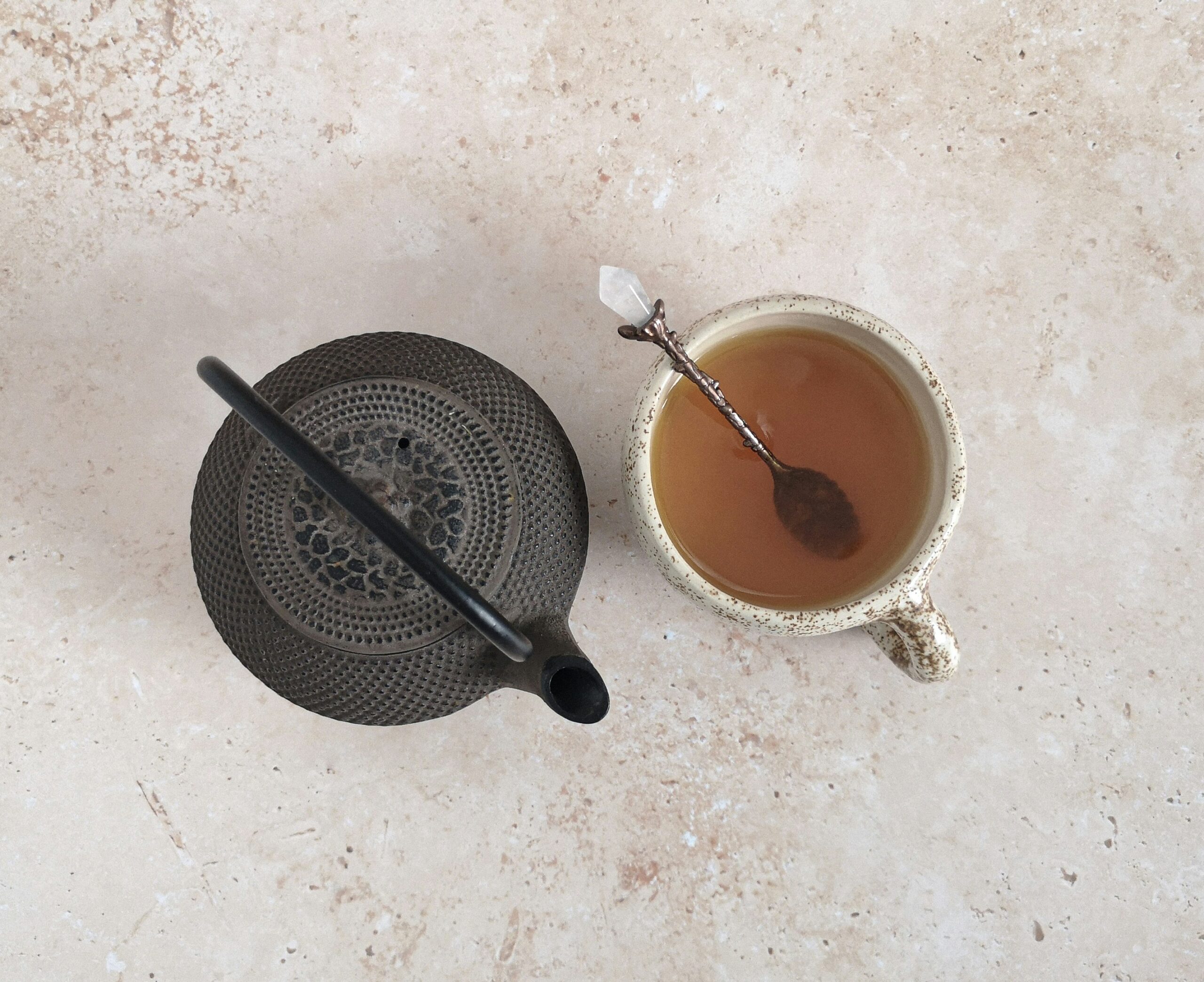Many people struggle with nightmares that disrupt their sleep and leave them feeling anxious or stressed. Using herbs can be a natural way to help reduce these nighttime disturbances and promote better sleep. Herbs have been used for centuries to calm the mind and body, providing a safe and effective alternative to conventional treatments.

Some popular herbs for helping with nightmares include valerian root, chamomile, and lavender. These herbs are known for their calming effects on the nervous system and can help ease anxiety and stress before bed. Drinking a tea made from these herbs or using them in aromatherapy can create a relaxing bedtime routine.
Along with using herbs, it’s important to address lifestyle factors that contribute to nightmares such as stress and poor sleep habits. Combining herbal remedies with good sleep hygiene can significantly improve your sleep quality and reduce the frequency of nightmares.
Key Takeaways
- Herbs like valerian, chamomile, and lavender can help reduce nightmares.
- Combining herbal remedies with a good sleep routine can improve sleep quality.
- Lifestyle factors such as stress management are also important for reducing nightmares.
The Science Behind Nightmares and Sleep
Nightmares and sleep disturbances can affect your sleep quality and overall well-being. Understanding nightmares, various sleep disorders, and the role of REM sleep is crucial in addressing these issues and improving your rest.
Understanding Nightmares
Nightmares are vivid, disturbing dreams that occur during REM sleep. They often cause you to wake up feeling scared or anxious. While anyone can experience nightmares, they are more common in children and those with specific sleep disorders or trauma histories. Nightmares can be triggered by stress, anxiety, medications, or other medical conditions. They impact sleep quality by causing disrupted sleep patterns, leading to daytime fatigue and difficulty concentrating.
Sleep Disorders and Disturbances
Sleep disorders such as insomnia, sleep apnea, and restless leg syndrome can lead to frequent sleep disturbances. These disturbances can cause you to wake up multiple times at night, reducing the time you spend in deep sleep stages. This restlessness affects your overall sleep quality and can lead to chronic sleep complaints. Managing these sleep disorders often involves behavioural changes, medications, or specialised treatments to help restore stable sleep patterns and improve brain function.
Importance of REM Sleep
REM (Rapid Eye Movement) sleep plays a crucial role in brain function and overall health. It is during REM sleep that most dreaming occurs, and the brain processes emotions, memories, and stress. A lack of REM sleep can impact cognitive functions and emotional regulation. The circadian rhythm, which governs your sleep-wake cycle, is also essential in maintaining healthy REM sleep patterns. Ensuring you get enough REM sleep can help reduce nightmares and improve your central nervous system’s overall efficiency.
For more in-depth research, you can refer to publications like this and this.
Natural Herbs as Remedies for Nightmares

Herbal remedies can offer a natural way to alleviate nightmares and improve sleep quality. These plants often work by calming the nerves and promoting relaxation, which can help reduce the frequency and intensity of bad dreams.
Traditional Use of Herbs for Sleep
Many cultures have long used herbs to aid sleep and prevent nightmares. For example, chamomile tea, known for its calming properties, has been used for centuries to help people relax before bed.
Valerian root is another popular herb that you might find helpful. It is commonly used as a natural sleep aid due to its sedative effects. Valerian can help you fall asleep faster and stay asleep longer, which can reduce instances of nightmares.
Peppermint and lavender are two other herbs frequently used to promote relaxation. Herbal teas made from these plants can help soothe the mind and body, making it easier for you to drift into a deep, restorative sleep.
Anxiolytic Properties of Herbs
Many herbs have anxiolytic (anxiety-reducing) properties that can help with sleep disturbances caused by anxiety. Passionflower is one such herb, often used to help calm nerves and reduce anxiety levels. This herb can increase the production of gamma-aminobutyric acid (GABA) in the brain, a neurotransmitter that helps reduce neuronal excitability, thus promoting relaxation and reducing nightmares.
Lemon balm is another helpful herb known for its calming effects. Drinking lemon balm tea can lower stress and anxiety, which are common causes of nightmares.
Ashwagandha is an adaptogenic herb that helps your body manage stress. Regular use can improve overall sleep quality and lower the frequency of nightmares by reducing nighttime anxiety.
Using these herbs can be an effective and natural way to improve your sleep and reduce nightmares. You can find them in various forms, such as teas, capsules, or tinctures, making them easy to incorporate into your nightly routine.
Key Herbs and Their Benefits
Several herbs are known to help reduce nightmares and improve sleep quality. This section covers how individual herbs like chamomile, valerian root, and lavender can help you achieve a more restful sleep.
Chamomile and Relaxation
Chamomile is well-known for its calming effects. It is often used to relax muscles and ease tension. This herb contains apigenin, an antioxidant that binds to certain receptors in your brain, promoting sleepiness and reducing insomnia.
Drinking chamomile tea before bed can help you unwind and prepare for sleep. Studies have shown that chamomile can reduce anxiety, which is often a root cause of nightmares. It is a natural remedy that can be easily added to a nighttime routine.
RELATED: Best Chamomile Tea: A Gentle Path To Wellness
Valerian Root and Sleep Quality
Valerian root has been used for centuries to improve sleep quality. It works by increasing levels of gamma-aminobutyric acid (GABA) in your brain. Higher GABA levels can have a calming effect on the nervous system, promoting better sleep.
Taking valerian root supplements about an hour before bed can help you fall asleep faster and stay asleep longer. It is particularly beneficial for people suffering from insomnia and can reduce the frequency and intensity of nightmares.
Lavender and Nervous System
Lavender is famous for its soothing scent and is used in aromatherapy to reduce stress and anxiety. Its calming properties can alleviate anxiety symptoms, which can often lead to nightmares. Lavender oil can be used in a diffuser or applied topically to your temples and wrists.
Research shows that lavender can lower your heart rate and blood pressure, creating a more conducive environment for sleep. The herb’s impact on the nervous system can also lessen the likelihood of experiencing disturbing dreams, making it a great addition to your bedtime routine.
RELATED: Best Herbal Tea For Morning: Energise Your Day Naturally
Preparing Herbal Remedies
To use herbs for nightmares, you need to focus on making herbal teas, infusions, and using essential oils in aromatherapy. These methods can help utilise the calming and sedative properties of certain herbs.
Herbal Teas and Infusions
Herbal teas and infusions are a simple and effective way to make use of herbs. You can prepare them using fresh or dried herbs. Passionflower, chamomile, and lemon balm are popular choices for promoting relaxation and reducing nightmares.
To make a tea, start by boiling water and then pouring it over your chosen herbs. Cover the cup and let it steep for 5-10 minutes. Strain the leaves before drinking. For a stronger infusion, you might let the herbs steep longer, even up to a few hours. This is particularly useful for potent herbs like passionflower.
A combination of herbs can be used to enhance the effect. For example, mixing chamomile with a bit of peppermint can create a soothing tea that also aids digestion. Lemon balm can be added for a gentle sedative effect, helping ensure a restful night’s sleep.
Essential Oils and Aromatherapy
Essential oils can be especially beneficial for addressing nightmares through aromatherapy. Lavender is well-known for its calming properties, while sage and mint are other effective options. These oils are used in various ways, such as diffusing them in a room, adding a few drops to a bath, or applying them to a pillow before sleep.
To diffuse essential oils, use an essential oil diffuser according to the manufacturer’s instructions. Typically, you need to fill the diffuser with water and add a few drops of your chosen essential oil.
For a relaxing bedtime bath, add a few drops of lavender or sage oil to the water. If applying oils to your pillow, it’s usually best to dilute the essential oil with a carrier oil like coconut or almond oil to avoid skin sensitivity.
Combining these methods can maximise the calming effect and help reduce the frequency and intensity of nightmares.
RELATED: Lavender Herbal Medicine: Relaxing Remedy
Lifestyle Factors Influencing Nightmares

Your daily habits and routines play a significant role in the quality of your sleep and whether or not you experience nightmares. Two major factors include what you eat and how you manage stress.
Diet and Sleep
What you eat can greatly affect your sleep and lead to nightmares. Consuming heavy, spicy, or sugary foods, especially close to bedtime, can disrupt your sleep. It is also important to avoid caffeine and alcohol in the evening as they can interfere with your REM sleep, during which nightmares occur.
Try to include foods rich in magnesium, such as leafy greens and nuts. Magnesium can help you relax and improve sleep quality. Additionally, consider herbal teas like chamomile or valerian root. These can have calming effects and reduce the chances of nightmares.
Stress Management Techniques
Stress is a common cause of nightmares. Effective stress management techniques are essential for improving sleep quality.
Practise mindfulness or meditation daily. These techniques can help calm your mind and reduce anxiety. Regular physical activity is also beneficial. Exercises like yoga or walking can reduce stress levels. Another useful technique is to maintain a consistent sleep schedule. Going to bed and waking up at the same time every day helps regulate your body’s internal clock.
Avoid screen time before bed. The blue light from screens can interfere with your sleep cycle and contribute to stress, leading to nightmares.
Potential Risks and Considerations

While herbal remedies can be helpful for addressing nightmares, it is important to be aware of their potential risks. These risks include side effects from certain herbs and potential interactions with medications you may be taking.
Side Effects of Herbal Remedies
Using herbs to treat nightmares can come with various side effects. Valerian root, often used to improve sleep quality, can cause dizziness, stomach upset, and headaches. Some herbs like chamomile and passionflower may lead to allergic reactions. St. John’s Wort, commonly used for depression, can increase sensitivity to sunlight and cause skin irritation.
It’s important to note that the effects can vary based on individual health conditions. For example, kava, used for its anti-anxiety properties, may lead to liver damage if used for extended periods. Always choose herbs carefully and consult with a healthcare provider, especially if you have existing health problems.
Interaction with Medications
Herbal remedies can interact with medications in unexpected ways. St. John’s Wort can reduce the effectiveness of birth control pills, anti-anxiety medicines, and even some pain medications. Valerian, when combined with other sedatives or alcohol, can amplify drowsiness and impair coordination.
Melatonin supplements, often used to regulate sleep patterns, can interact with blood thinners and medications for diabetes, leading to serious health issues. You should be particularly cautious if you are on antidepressants, as combining these with certain herbs can cause mood swings or increase the risk of side effects.
Always discuss with your doctor before combining herbal remedies with any other medications. This precaution helps ensure that you avoid harmful interactions and maintain your overall health.
Complementary Therapies and Practices

Engaging in complementary therapies and practices can enhance your well-being, boost your mood, and reduce anxiety levels. These approaches blend mindfulness, physical exercise, and sleep hygiene to help you sleep better.
Incorporating Mindfulness and Meditation
Mindfulness and meditation are crucial for managing stress and anxiety, which can cause nightmares. Practicing mindfulness helps you stay present, reducing negative thoughts that disturb sleep.
Daily meditation sessions, even for just 10 minutes, can significantly improve your mood. Techniques like deep breathing, progressive muscle relaxation, and guided imagery are effective. These practices have been shown to reduce overall stress levels, promoting a calm mind that is conducive to restful sleep.
Incorporating a mindful evening routine, such as listening to calming music or doing a gentle yoga session, can prepare your body for sleep. This routine not only relaxes your muscles but also signals your brain that it is time to unwind.
Physical Exercise and Sleep Hygiene
Regular physical exercise plays a significant role in improving your sleep quality. Exercise reduces anxiety levels and makes it easier for you to fall asleep and stay asleep. Aim for at least 30 minutes of moderate exercise, like walking or cycling, most days of the week.
Good sleep hygiene practices are essential. This includes maintaining a regular sleep schedule, creating a comfortable sleep environment, and avoiding stimulants like caffeine close to bedtime. Keeping your bedroom dark and at a cool temperature can also promote better sleep.
Incorporating light stretching or low-impact activities, such as tai chi or gentle pilates, into your exercise routine can further enhance relaxation. This helps to reduce muscle tension, making it easier for you to shift into a restful state.



Comments +